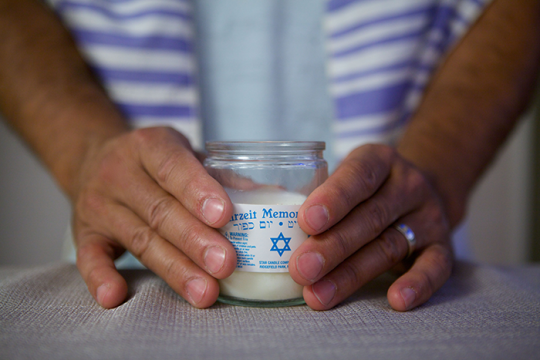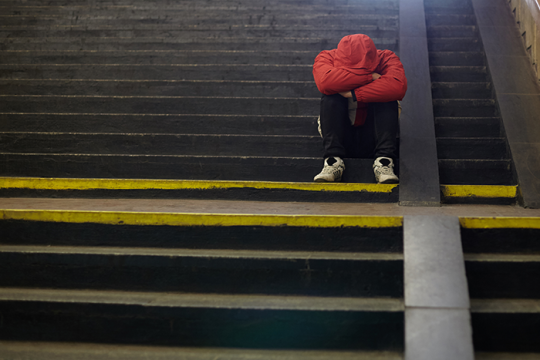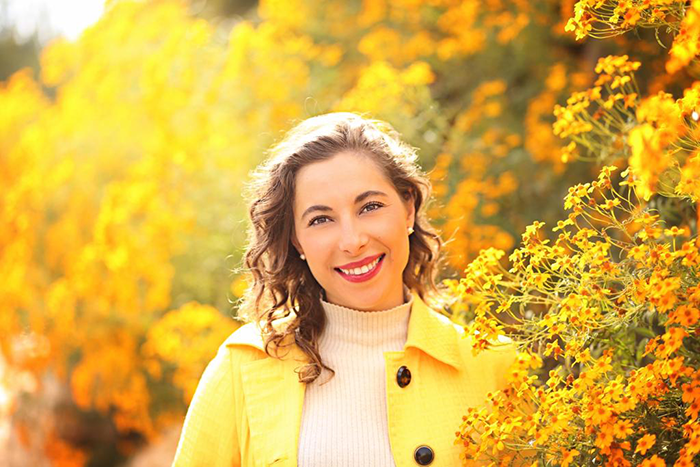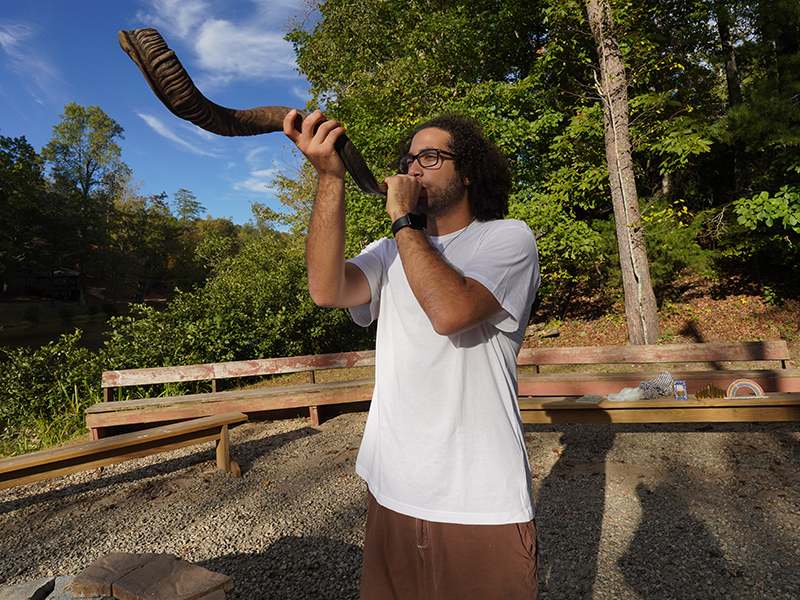
As we mark the second anniversary of October 7th, the ongoing trauma and tragedy remain raw and unresolved as our hostages remain in captivity and Jews around the world grapple with rising antisemitism. Yet, amidst our deep challenges and pain, the story of Ofri Etta Reiner, a young woman who survived the Nova music festival massacre, offers a powerful testament to the human spirit’s capacity for resilience and growth.
Ofri grew up in Haifa, drawn to the values of Zionism and social justice. She volunteered to serve in combat in the IDF, driven by a desire to understand the complexities of the Israeli Palestinian conflict. Her experiences at the Seeds of Peace camp in Maine, where Israelis, Palestinians, and Americans came together to find common ground, shaped her worldview.
On the night of October 6th, 2023, Ofri danced with four friends at the Nova Festival, surrounded by unbridled joy and music. But on the early morning of October 7th, her world was shattered. Her harrowing account of that day is a testament to the unimaginable traumas that the Nova attendees and many Israeli communities experienced on that Simchat Torah morning.
As Ofri and her friends fled, they came under direct fire from Hamas terrorists both while in their car and later while they were on foot. Ofri endured an arduous four-hour walk with a twisted ankle under the scorching sun until she finally reached physical safety. Meanwhile, more than 400 of her peers at the Nova Festival had been killed or taken hostage. Her brother, Shalev Dagan, was killed in a heroic act of bravery as one of the first soldiers to encounter Hamas terrorists, ultimately preventing eight terrorists from entering Kibbutz Nirim and delaying the invasion there by two hours. Unbeknownst to Ofri, he was killed just miles away from her and saved her life “both physically and mentally.” The trauma of that day left Ofri grappling with feelings of isolation, survivor’s guilt, and an overwhelming emotional burden.
In the aftermath of October 7th, Ofri discovered a new sense of purpose. Through her art, she began to process her trauma, creating charcoal sketches that reflected her emotions and experiences. Her drawings became a way to honor the memories of those who were lost, including her brother. As she navigated the complex emotions surrounding her loss, Ofri realized that she wasn't alone. She found solace in connecting with others who had experienced similar trauma. Together, they began to heal.
Ofri's journey towards healing is a testament to the power of post-traumatic growth. This concept, developed by trauma experts and psychologists Dr. Richard Tedeschi and Dr. Bret Moore, describes the positive psychological change that can occur after trauma as individuals find new meaning and purpose in life.
For Ofri, growth has been a gradual process, marked by moments of introspection, creativity, and connection. Through her art and her storytelling, she has found a way to transform her pain into something meaningful, creating a sense of hope and resilience that inspires others to grow in the face trauma.
As Ofri continues her path towards healing, she has come to realize the importance of respecting individuals’ pain and trauma. She refuses to compare pain or guilt, emphasizing that everyone's experience is valid and deserving of respect: "There is no room for comparison of pain, and no room for guilt," she says. To those in the Diaspora, she says, "You're going through a loss too, and it also matters." Ofri's words remind us that everyone's pain is real, and everyone's story matters.
Ofri has also found healing in activities like sailing and free diving. "[The] beach and waves give me calm; dealing with its uncertainty is triggering and requires me to control my emotions and breath."
As we reflect on the past two years, Ofri urges us to recognize our own strength and resilience in the face of adversity. "We are not the same as we were before – something changed in our hearts, no matter how close or far we were from the events of October 7th," she says.
"The Jewish people are still facing existential threats everywhere and we can make an active choice, like drawing, baking, meditation, running... showing the brain that we're not helpless in front of uncomfortable feelings in our heart."
Ofri says she dreams of a world where people across differences can come together, sharing their stories and perspectives to build a more compassionate and understanding society. "I'd like to see more dialogue between young adults in the Diaspora and in Israel," she says.
"My utopia is seeing Jewish young adults from the Diaspora engaging with Israelis who recently finished the army, both trying to understand what it means to be Jewish or Israeli."
Ofri's experiences sharing her story have been transformative. Last year, she embarked on a 15-week tour across 16 countries, delivering 75 lectures, which included several Reform communities. Through narrating her own story, she found power and a sense of purpose. This experience gave her a sense of shlichut (being an emissary) and participating in “something greater.”
Ofri works to inspire everyone to find strength in their own stories and to build connections with others. In the face of adversity, Ofri's message is clear: we can choose to let our experiences define us, or we can use them as a catalyst for growth, "making flowers from pain."
Ofri offers some actionable ideas for coping and maintaining resilience, including:
- Making an active choice: Engage in new activities that promote a sense of control, agency, and where you can create or find release.
- Stepping out of yourself: Connect with others who have experienced similar trauma or challenges and find comfort in shared experiences.
- Recognizing your greatness: Acknowledge and celebrate your own strength and resilience in the face of adversity.
- Building community: Foster connections with others to build a support network and promote healing.
- Telling your story: Share your story and listen to others to promote empathy and understanding.
Related Posts

Resources for Marking the Anniversary of October 7th

Embracing Jewish Tradition to Process Trauma and Grief


